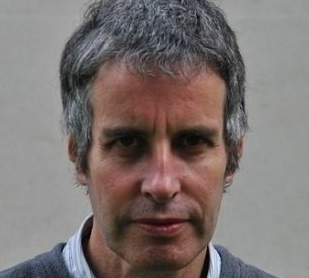#CCRC20: What to do about the epidemic of historical sex abuse cases?

Another month passes, and more letters hit our desk:
- ‘I am currently serving a 12 year sentence, six years in custody and six on licence. I have served 18 months in prison so far. I was convicted at X Crown Court on x 2015 for something I didn’t do.
The convictions against me are historical sex abuse and rape dating back over 25 years. My accuser has received large amounts of compensation which I believe to be the reason these false allegations were made against me. I have to keep fighting this travesty of justice.’- ‘During the process of the investigation I was informed by my solicitor that I had nothing to worry about and, I quote, ‘It’s a walk in the park, they have nothing on you’. 14 years to serve, seven for a walk in the park for a crime I certainly did not commit!’
- ‘The justice system is skewed…. once you are charged you have to prove your innocence. SOMETHING NEEDS TO BE DONE. There are probably thousands of women and children too scared to come forward about genuine cases. Yet unfortunately opportunistic, jealous, bitter, money orientated people are making false and malicious claims, getting away with it, creating genuine victims that not only affects the accused emotionally but also their families.’
These are not letters from ‘celebrities’ – they are from ordinary people, like you or me.
There have been numerous excellent articles on the Justice Gap about what amounts to an epidemic of largely, but not exclusively, historical sexual abuse accusations. Ros Burnett’s article – ‘Why it is too easy for innocent people to be wrongly accused of sexual abuse’ – illustrates how even some senior police officers are feeling that accusations are reaching ‘saturation point’. It also shows how changes in the handling of sexual abuse accusations along with changes in the law and procedure have made the likelihood of people being wrongly accused and wrongly convicted much greater in recent times.
We loudly echo this, based on what we see in our work at Cardiff Law School Innocence Project. A typical week brings us another letter, email or phone call from a desperate prisoner or their relative or friend requesting our help to address a conviction for sexual abuse which they say was based on a false accusation. Invariably they describe how and why it could not have happened, how the accuser’s story was inconsistent and how the accuser’s actions do not fit with that of a victim. There may be ‘common sense’ reasons why it can’t be true: how can a father repeatedly rape his five-year old daughter while her mother sleeps through the event in the same bed. Unbelievable? Yes, but that’s a real story and a real conviction.
What should we say to these people?
How do we tell them that none of this means anything once you are convicted? How do we tell them that if the only evidence is the word of the accuser(s) then there is virtually no way we can find new evidence for an appeal because there never was any evidence beyond the accusation and the word of the complainant? The accusations are usually so unspecific in terms of time, and sometimes even place, that having an alibi is a non-starter. ‘The events occurred numerous times between 1996 and 2003,’ may be typical. There never seems to be any record or evidence of physical injuries to match the accusations.
As Ros Burnett’s article, and that of Barbara Hewson (False Allegations, emotional truth and actual lies) show, the requirement for evidence other than the complainant’s word has all but been abandoned in these cases, and assumption has taken the place of serious investigation. The sexual abuse accusation becomes a potent weapon against which there is no defence. The social and political implications of this should be of concern to all of us. There is now a very easy way to dispose of a political enemy, a tiresome relative or partner, or any other unwanted or inconvenient person, while at the same time achieving emotional support, public praise for showing ‘courage’ and potential financial reward. The reasons why people make false accusations are many and varied (see Felicity Goodyear-Smith, Why and How False Accusations of Abuse Occur, FACTion Volume 6.1 Summer 2015, and the book edited by Ros Burnett, Wrongful Allegations of Sexual and Child Abuse). But false accusations are happening, and in epidemic proportions.
Some Cardiff innocence project students attend the support group South Wales against Wrongful Conviction. In its early days in the 1990s this group, then known as South Wales Liberty, supported numerous miscarriages of justice cases.
There were two main differences to nowadays. The miscarriages of justice cases we supported tended to get overturned – the Cardiff Newsagent Three, Jonathan Jones, the Merthyr Three, Mahmood Mattan – not necessarily because of our actions, but the system, while still tough, was not as determined to uphold convictions at all costs as it seems to be today. Secondly, they were pretty well all murder cases.
Now the group is almost exclusively about sexual offence convictions and I can’t name one conviction associated with that group or any other casework project that has been overturned.
It could be argued that innocence projects should not take on historical sex abuse cases when they are effectively ‘no evidence cases’, because there is no evidence to challenge (apart from the credibility of the accuser(s), and the appeal system doesn’t want to hear about that). Therefore there is no hope of success, and nothing the students (or anyone else for that matter) can realistically do that will find new evidence. On the other hand, if we turn away from these unfortunate victims of potentially false accusations, we are turning a blind eye to one of the great human rights scandals of our time, and one of the great sources of unnecessary human tragedy. Law students need to know about this, even if our role is little more than palliative care for those seeking our help.
When we meet with the members of South Wales Against Wrongful Conviction we see people and families torn apart and utterly mystified that the law they were brought up to trust and believe in can destroy them and their loved ones with such frivolous and cruel abandon. A few of their sad stories will be told by these forgotten victims in the articles that will follow over the next few weeks.
We need to have a greater appreciation of the complex reasons why some disturbed or damaged people make false accusations. In the meantime, let’s not be embarrassed to suggest that some of these claimants are motivated to lie because of the chance of large sums of money. A compensation culture featuring some unscrupulous PPI/ambulance-chasing organisations has developed while society took its eye off the common sense ball. That dubious ‘no victim’ (it’s only insurance companies that take a hit) compensation mentality has extended its ugly tentacles to embrace false sexual abuse allegations. But it has no regard for the many real victims it has created – those who are sent to prison on the flimsiest of uncorroborated ‘evidence’.
It’s time for an overhaul of compensation in historical sexual abuse cases.







